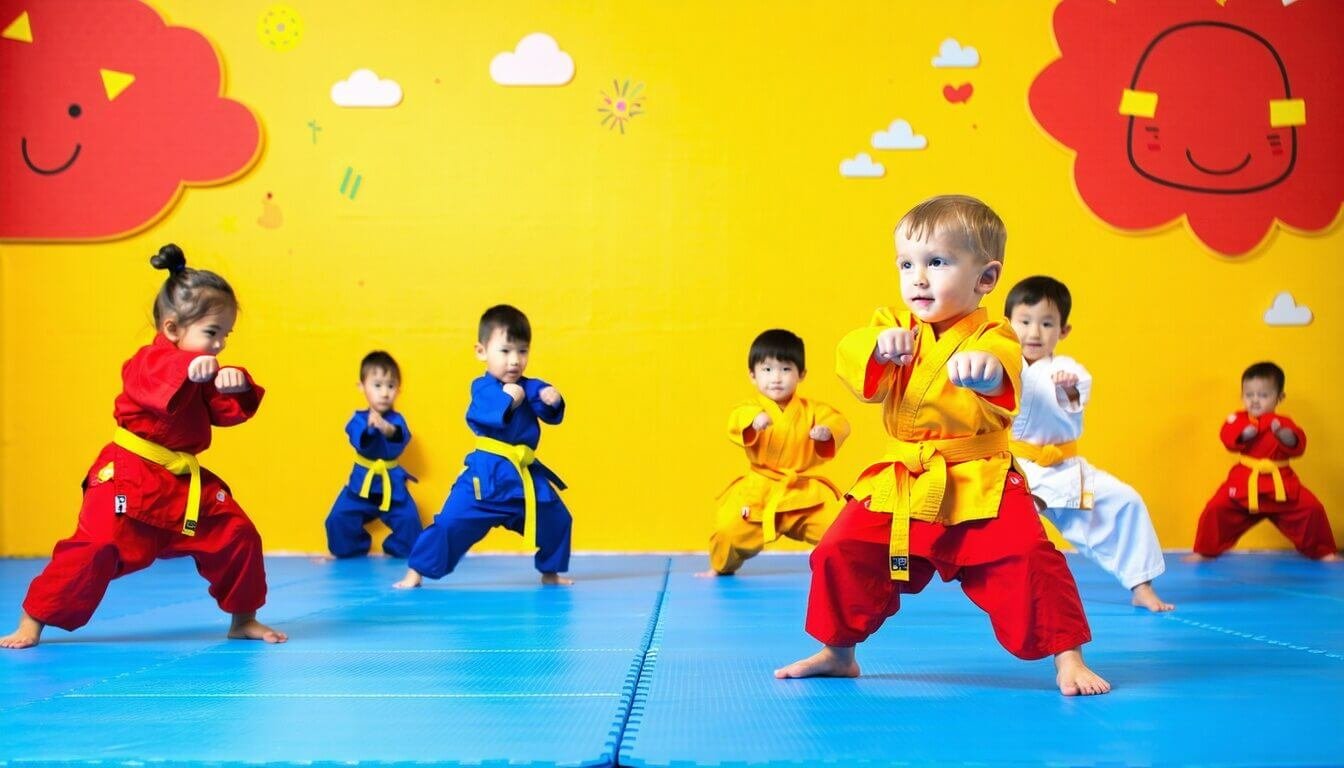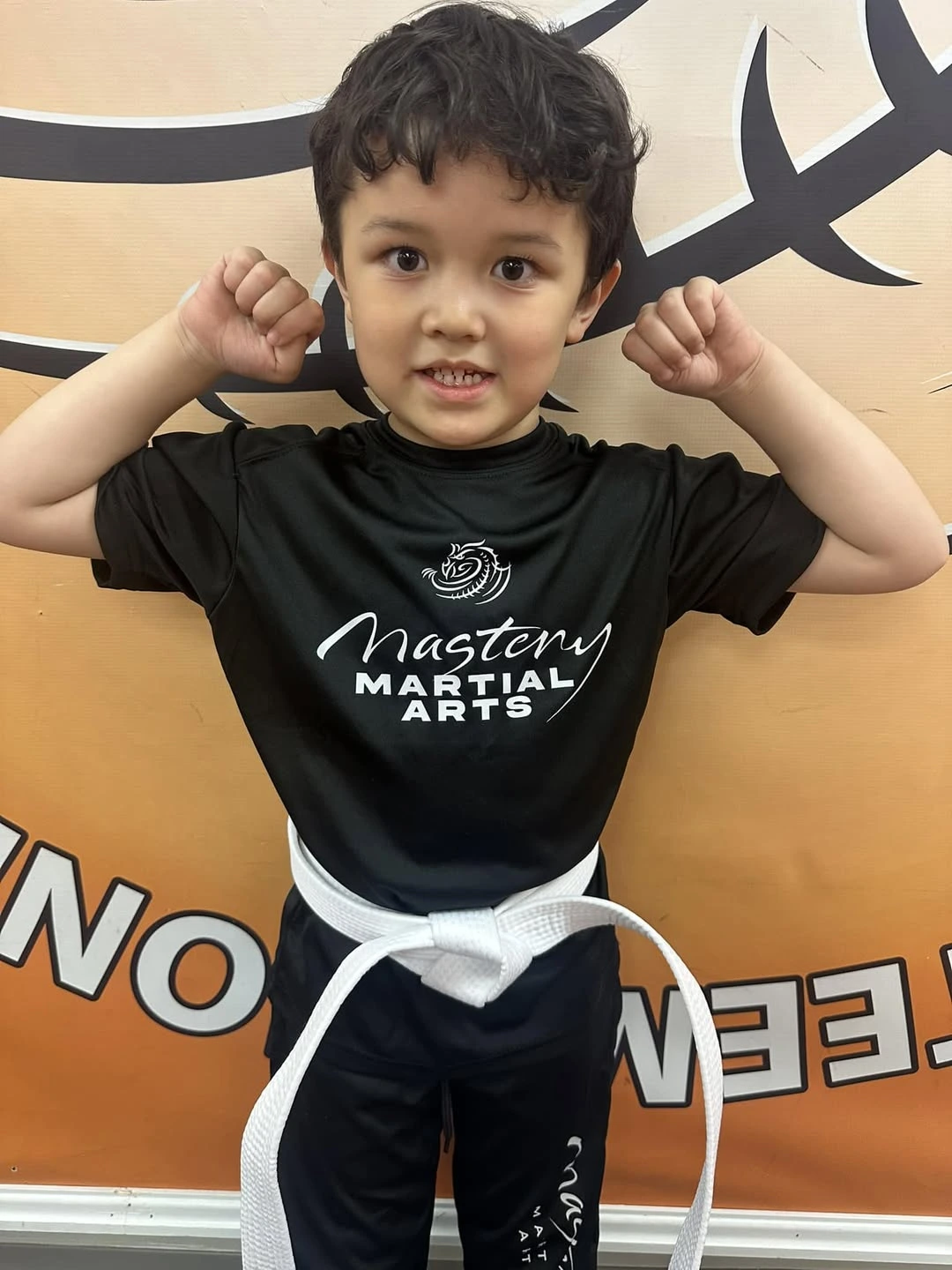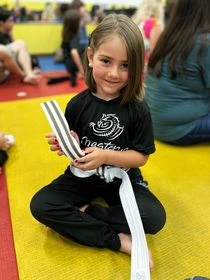Over 6 million children in the United States discover new strength and focus through martial arts. If you want your child to enter school with an extra boost of confidence, martial arts for preschoolers can be a fun and beneficial choice. Good news—this is easier than it sounds, thanks to safe, structured programs that teach valuable social and emotional skills.
Build Vital Confidence Early
Preschoolers thrive when they learn to trust their own abilities. In a martial arts program, your child can explore movements and techniques that improve balance and coordination. Each small victory—executing a basic kick or earning a striped belt—offers a noticeable self-esteem boost. This positive cycle of setting and achieving goals can instill the motivation your child needs to feel ready for the classroom.
- Goal-Based Progress: Earning colored belts at their own pace helps preschoolers celebrate progress without competing against others.
- Physical Coordination: Kicks, punches, and stances fine-tune motor skills and encourage better spatial awareness.
- Emotional Growth: Following instructions and adhering to routines builds discipline (a consistency that benefits life beyond the dojo).
If your child is younger than four, take a look at martial arts for toddlers to see how training can start gently and grow with them.
Key Social And Emotional Benefits
Children develop important social skills by working with instructors and peers. A martial arts class encourages teamwork, respect, and consistent communication. Through partner drills and group interactions, kids practice sharing space and supporting each other’s progress. They also learn empathy, because understanding a partner’s pace and comfort level is key to cooperative practice.
- Teamwork In Action: Partner exercises build cooperation and trust, vital skills for a preschooler who is learning to collaborate.
- Conflict Resolution: Instructors teach children to respond rather than react. This skill carries over to everyday disagreements, making your child more thoughtful and calm.
- Listening Skills: Children learn to focus on commands quickly, a habit that translates well to paying attention in a busy classroom.
Consider exploring child development through martial arts for a deeper look at how these training sessions can foster emotional growth.
Tips For A Safe Start
Beginning martial arts at a young age should balance fun and safety. Most reputable programs incorporate protective equipment and child-friendly routines. Instructors often guide kids through short, manageable activities that help them master techniques step by step.
- Inspect The Class Environment
- Look for padded floors, well-maintained gear, and a welcoming atmosphere to keep your child confident.
- Ask about the student-to-instructor ratio so you know each child gets enough attention.
- Check Protective Gear
- Mouthguards, cushioned gloves, and light headgear can help prevent common bumps or bruises.
- Knee and elbow pads can also reduce minor injuries during playful drills.
- Choose The Right Program
- Many martial arts schools, like Mastery Martial Arts – Troy, provide specialized classes for preschoolers.
- You will often find a free VIP 1-on-1 Introductory Lesson, perfect for easing your child in gently.
Want more ideas to help your child get ready for school? Look into martial arts drills for school readiness that keep kids active while building focus.
Next Steps For Growing Confidence
Martial arts classes for young children are designed to meet them where they are and gradually build their abilities. You can see real gains in self-esteem once your child understands that progress comes from consistent effort. If you are seeking an encouraging, high-energy way to boost your child’s readiness for the new school year, this style of training can be a game-changer.
- Talk To Your Child: Ask what they enjoy most—kicking, sparring, or just being part of the group.
- Visit A Dojo: Request a trial session or free VIP 1-on-1 Introductory Lesson and observe how the instructor interacts with the class.
- Celebrate Small Wins: Whether it is mastering a simple stance or helping a partner, each new achievement is worth praise.
When you combine structured fun with supportive instructors, your preschooler gains both physical and mental benefits that naturally carry over into the school year. You have an opportunity to equip your child with confidence and focus through a safe approach that offers practical social skills too. By starting early and nurturing these qualities now, you help your child step into the classroom ready to learn, lead, and shine.





0 Comments